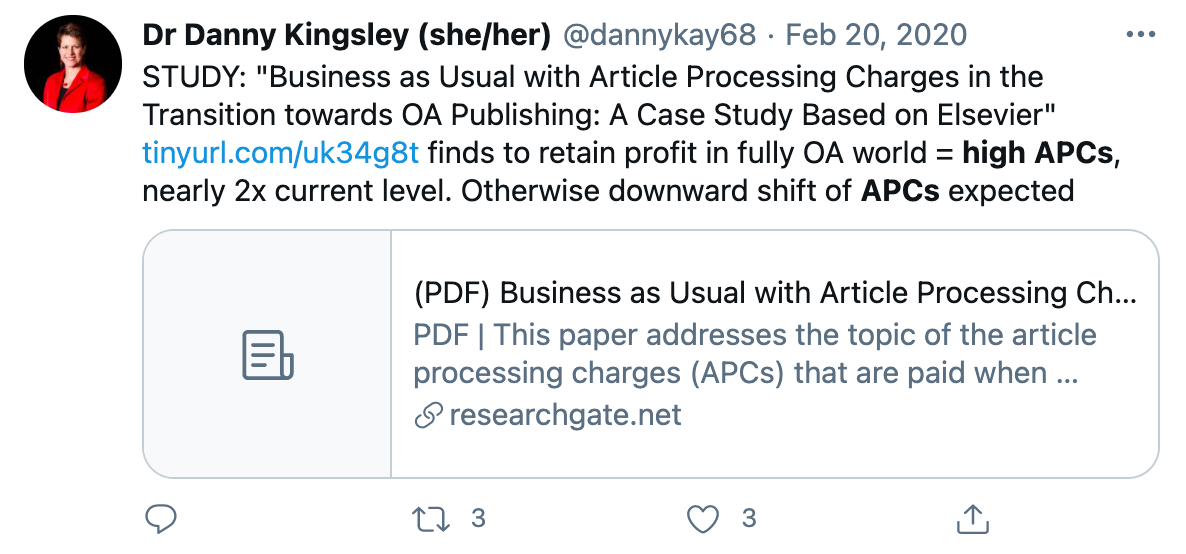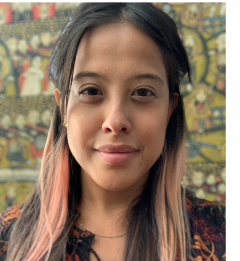Sara Rouhi
PLOS
5 February 2021
Not sure what FUBU is? Google it.
I kicked off my last editorial saying “The new normal means never going back to how things were before. We know Thomas Kuhn’s definition of a paradigm shift. If weathering a pandemic, an ethno-nationalist white grievance movement, and a social justice revolution simultaneously doesn’t meet that definition nothing does. Our industry cannot do transformative work without comprehensively examining, undoing, and rebuilding our current prejudices, processes, norms, and standards.
Why is that status quo corrosive? Because it has been and remains “For Us By Us” — FUBU. And don’t get it twisted. Us = white, english speaking, largely male, Northern European, and North American norms, standards, processes and networks — what I’ve called in the other fora “the western research industrial complex.”
Where’s the blind spot? FUBU is not inherently bad. Indeed, FUBU, the company, chose the name to signify breaking away from the mega-corporations profiting from black artists and athletes to generate a brand created for and by the black community (subverting even powerhouse mid-90s brand, the GAP, via hip hop, in their own ad).
The blind spot (or self deception) in #scholcomm resides in our public commitment to a fully democratized, global research enterprise “open to all” in the name of “progress, all the while openly acknowledging that what constitutes progress is often the same as what constitutes “success.” And the definition of success is … our own, a definition that most often excludes those same communities we trumpet as essential to the fabric of this project.
So Part 2 is about exploring this blind spot at our own organizations so we can honestly face it.
It starts at the top.
No organization can successfully engage in genuine anti-racist work and self-reflection if the energy and commitment is not coming from the very top of the organization. CEOs, executive teams and senior management must set the agenda and tempo for this kind of work, model how looks in action and assure the resources are there to support the work. Reciprocally, their teams must hold them accountable.
I’m seeing this work happen daily at PLOS. Our CEO and executive leadership accelerated DEI work in the wake of last summer’s tumult, recognizing that not only must PLOS do more to further this work internally, but it also needed to be a priority on the same level as other PLOS-wide organizational goals.
Even before this paradigm shift began in earnest (in 2019), PLOS brought on a new Chief People & Equity Officer, Kristina Martin, who’s been leading Diversity, Equity, and Inclusion (DEI) work in schools and organizations/businesses for over 20 years. Of the four 2021 PLOS annual organizational objectives, one is dedicated entirely to a “People & Culture” objective focused on DEI embedding every aspect of our work — not just hiring. Every manager across the organization is expected to work the competencies outlined in this objective into team and individual goals. These standards are now embedded into performance evaluation, promotions, and other forms of professional recognition and rewards at every level.
If an organization’s leadership does not underscore the priority of this work it will simply not get done.
It’s not just about people; it’s about strategy
Here I’m lifting directly from PLOS’ CEO, Alison Mudditt, in a recent piece in The Scholarly Kitchen last fall. In this piece, she exhorts our community to examine strategy, not just people practices, if we want to be serious about meeting this unique moment.
While DEI in the realm of people practices at our individual organizations is an essential tactical piece of work that needs serious thinking and resources, that alone does not constitute a deep reimagining of workplaces in our industry.
She writes,
“We need to deliver a fundamental shift in the way we work internally and with all of our stakeholders in response to a watershed moment. It’s about strategy as much as it is our people policies. We have to grapple with the reality that the racism and inequality we are collectively calling out has been going on for centuries. And that our organizations have played a role in perpetuating it.”
So what strategies are we perpetuating that have to be reimagined? Perhaps we should start with how we talk about ourselves across the industry and if our self-descriptions are honest.
A quick search of major players in our industry is one place to start… We’ve also chosen specific words and labels to characterize our work. How accurate are they?



When we look at how we present ourselves to the “world” what does it mean to say that we’re an “international” organization or industry? Does international mean having offices where we relocate white, English speaking staff temporarily in rotation to manage third party local contractors? Does international mean bringing “Global North” norms and standards to regions and communities looking for something else? To what extent are our “international efforts” further contributing to that very locking in?

When we claim to be catalysts for progress are we honest in asking the question, “for whom?” The 2019 Open Access week theme pressed us to evaluate “Open for Whom?” when thinking about the progress of open access. This question has to be top of mind as organizations innovate/transform during this unique period. If the launch of a new business model or vehicle for research dissemination further underscores exclusionary practices deeply embedded in our industry we are indeed catalyzing transformation…for ourselves.


Trust is paramount to the success of our industry’s endeavors, particularly during this deep ebb in public trust in institutions, science and the media. When we claim to be trusted, once again we must ask, by whom and for whom? The irony of both the crises in reproducibility and research assessment is that our own self-imposed norms have led to the deterioration of trust in the results in our research (and how they should be assessed).
Indeed, “A burgeoning number of scientific leaders believe the current system of faculty incentives and rewards is misaligned with the needs of society and disconnected from the evidence about the causes of the reproducibility crisis and suboptimal quality of the scientific publication record.”
That’s us! We did that! And don’t get me wrong — “us” and “we” means all stakeholders in the scholarly communications ecosystem, not just publishers. Researchers, university administrators, funding agencies, even libraries have contributed to creating this superstructure. (To say nothing of the drivers we created for researchers in non-white, Western geographies who wish to enter our club via the prestige markers we created. JIF bonuses, anyone?)
We’ve come full circle when the FUBU markers for trust that we created now incentivize untrustworthy research practices…
How much, if any of this, are we willing to pitch in an effort to meet this paradigm shift in #scholcomm.
Lastly, it’s about personal choices and accountability.
We are extremely lucky to work in a resource-rich and (sometimes) mission-driven industry. These two things often coincide, and while they’re not 100% ubiquitous, they align more frequently in our field than many other places. Many of us are deeply committed to our organizational missions. As we weather this current paradigm shift, we have to hold our organizations, and ourselves, accountable.
While we may not all have the luxury of leaving organizations whose mission and business activities do not align with our personal values, we may have the ability to choose where to land next. #scholcomm organizations seeking to recruit and retain top talent will face increasing pressure to demonstrate how they are meeting this moment. This could include being asked to share data and strategy on DEI efforts, regional business practices, hiring trends and even nascent strategic plans.
Organizations that cannot show a pivot to this work and the fruits of that work may become less attractive to a more activist and aware talent base aiming to drive this kind of change.
Leadership itself must be held accountable by their staff. At organizations lucky enough to have top-down leadership re: the deep work required at this moment, staff at all levels must hold their organizations to account. Where is the revised mission/vision/DEI statement? How have those been adopted in hiring and promotion? How are they integrated in performance objectives and staff reward efforts? Why aren’t they in my objectives? Etc.
And, yes of course, most of us do not have the luxury of quitting jobs or calling out executives when we perceive slippage in this effort; so I implore us all to identify the close-to-home areas in our work life where we can bring this change ourselves.
While top-down strategic change will be the most lasting at the organizational level, individual managers and contributors can bring this ethos to their own everyday work.
At an organization with no stated DEI priorities? Consider creating a personal goal for yourself and your team to push for more diverse hiring by moving outside of your usual networks.
Participating in a conference panel or presentation? Consider urging organizers to push for more representative content and speakers.
Participating in group projects? Evaluate if all voices in the group are getting adequate airtime and use your role as an ally to raise voices that aren’t heard.
Change always starts with one person, one moment at a time. We can still hold ourselves accountable and hopefully start the ripple that turns FUBU into something honest and meaningful, if we each believe in the part we can play.
So how are you tackling this work where you are? I hope you’ll share your experiences (perhaps on Twitter #MakingscholcommFUBU?) so we can all learn.
Members can read Sara’s previous Editorial: We cannot and must not “go back” here
The opinions expressed here are those of the author and not necessarily UKSG.

